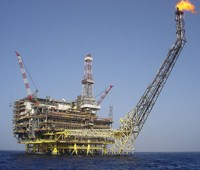Last month, the government of Israeli Prime Minister Benjamin Netanyahu announced plans to export up to 40 percent of the gas from Israel’s Eastern Mediterranean fields, with expected earnings of up to $60 billion over a 20-year period. This is, however, only the first step toward realizing export revenues from Israel’s gas reserves, a process fraught with complicated choices over the route and destination of those exports. Rather than aiming to use its gas for any great geopolitical gains, Israel currently seems happy to avoid unsettling interested parties while it reaps long-term economic gains from its gas bounty.
Domestically sourced gas has come as a great relief for Israel, which had been reeling under high electricity prices since the cutoff of Egyptian gas supplies following pipeline attacks in the Sinai in 2011 led to gas-based electricity generation being substituted with expensive oil-fired generation. The memory of these recent hardships has made public opinion in Israel averse to the idea of sending gas abroad, and protests against exports were a key reason for the delay in approving them.
But export Israel must, if only to keep existing investors happy and attract new ones. The current consortium developing Israel’s two largest fields, Tamar and Leviathan, led by Texas-based Noble and Israel’s Dalek, has made it clear it needs clarity on exports before it will conduct further prospecting. The 40-percent export quota, however, was reduced from the 53 percent earlier proposed by the Tzemach committee, which was created to draft Israel’s national energy policy, limiting the options available to the companies involved for selling gas from Israel’s current proven reserves.

